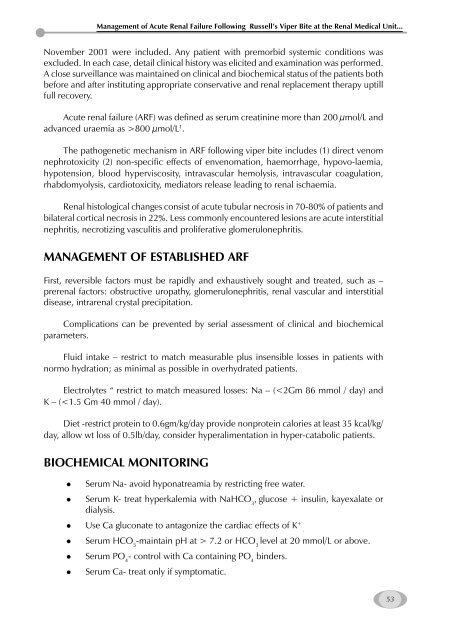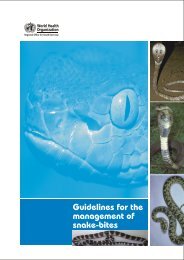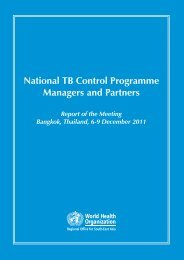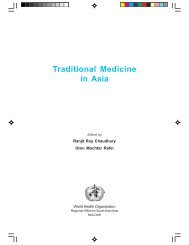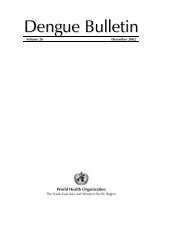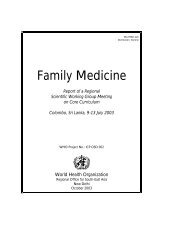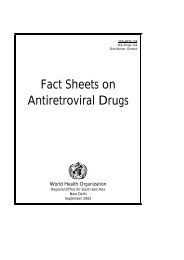Management of Snakebite and Research Management of Snakebite ...
Management of Snakebite and Research Management of Snakebite ...
Management of Snakebite and Research Management of Snakebite ...
You also want an ePaper? Increase the reach of your titles
YUMPU automatically turns print PDFs into web optimized ePapers that Google loves.
<strong>Management</strong> <strong>of</strong> Acute Renal Failure Following Russell’s Viper Bite at the Renal Medical Unit...<br />
November 2001 were included. Any patient with premorbid systemic conditions was<br />
excluded. In each case, detail clinical history was elicited <strong>and</strong> examination was performed.<br />
A close surveillance was maintained on clinical <strong>and</strong> biochemical status <strong>of</strong> the patients both<br />
before <strong>and</strong> after instituting appropriate conservative <strong>and</strong> renal replacement therapy uptill<br />
full recovery.<br />
Acute renal failure (ARF) was defined as serum creatinine more than 200 µmol/L <strong>and</strong><br />
advanced uraemia as >800 µmol/L 1 .<br />
The pathogenetic mechanism in ARF following viper bite includes (1) direct venom<br />
nephrotoxicity (2) non-specific effects <strong>of</strong> envenomation, haemorrhage, hypovo-laemia,<br />
hypotension, blood hyperviscosity, intravascular hemolysis, intravascular coagulation,<br />
rhabdomyolysis, cardiotoxicity, mediators release leading to renal ischaemia.<br />
Renal histological changes consist <strong>of</strong> acute tubular necrosis in 70-80% <strong>of</strong> patients <strong>and</strong><br />
bilateral cortical necrosis in 22%. Less commonly encountered lesions are acute interstitial<br />
nephritis, necrotizing vasculitis <strong>and</strong> proliferative glomerulonephritis.<br />
MANAGEMENT OF ESTABLISHED ARF<br />
First, reversible factors must be rapidly <strong>and</strong> exhaustively sought <strong>and</strong> treated, such as –<br />
prerenal factors: obstructive uropathy, glomerulonephritis, renal vascular <strong>and</strong> interstitial<br />
disease, intrarenal crystal precipitation.<br />
Complications can be prevented by serial assessment <strong>of</strong> clinical <strong>and</strong> biochemical<br />
parameters.<br />
Fluid intake – restrict to match measurable plus insensible losses in patients with<br />
normo hydration; as minimal as possible in overhydrated patients.<br />
Electrolytes “ restrict to match measured losses: Na – (


